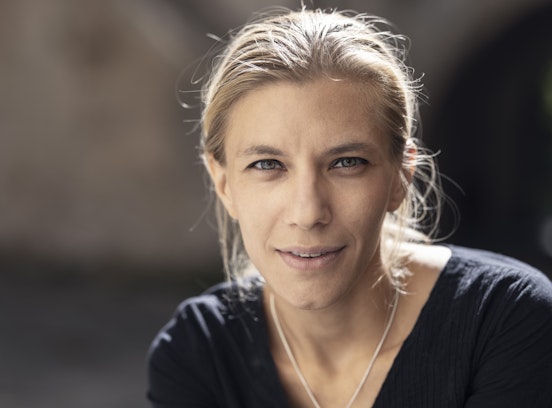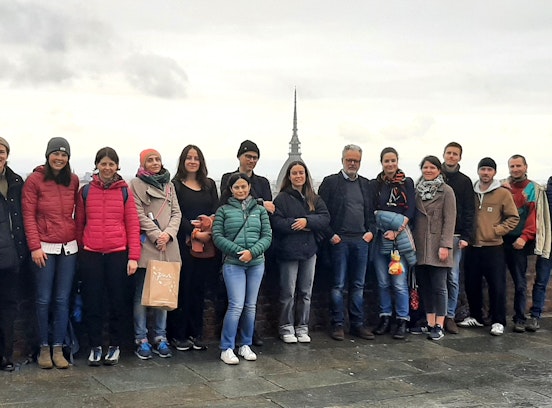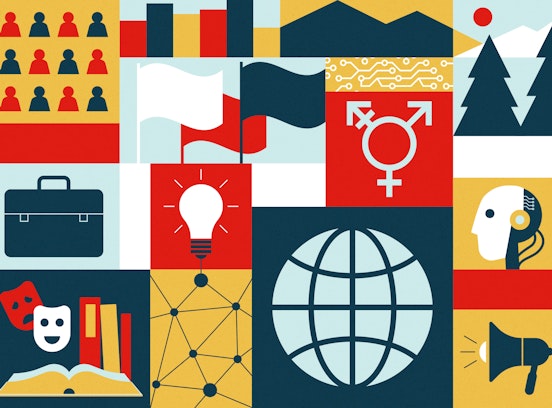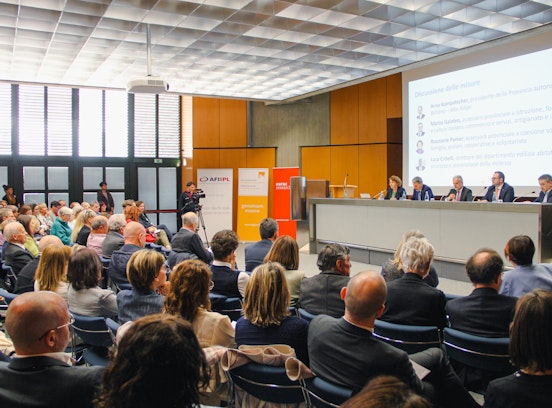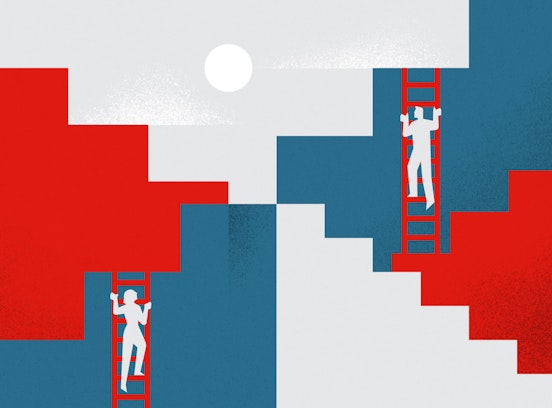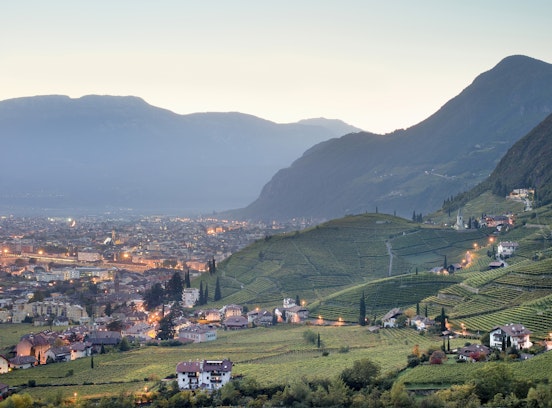Center for Advanced Studies - News & Events - Rethinking (In)Equality: "There is no good life at the expense of others"
Rethinking (In)Equality: "There is no good life at the expense of others"
Eurac Research, Steinbeis University and BASIS Vinschgau Venosta hosted a conference in two acts: "Rethinking (In)Equality" and "Churburg Economic Talks 2.0"
- Deutsch
- English
- Italiano
As much as the world - as the pandemic has shown us - by necessity forms a fated community, as closely networked as we may be, we live in a system that is based on inequalities. Many differences exist from the moment of birth and have an impact on a person's entire biography. Our way of doing business exacerbates social disparities and, not least, fuels the climate crisis. What can be done to counteract existing inequalities was at the heart of the two-day conference "Rethinking (In)Equality" on Thursday, 14 October in Bolzano and Friday, 15 October as part of the Churburg Economic Talks 2.0 in Sluderno / Schluderns.
"Capitalism has not only expanded at the expense of nature, it has also failed to deliver on its promise of welfare and justice for large sections of the population. More than 2 billion people live in poverty and food insecurity today. And this despite the fact that never before have such large quantities of food been produced." Barbara Unmüßig, political scientist and director of the Heinrich Böll Foundation in Berlin, did not mince her words when she denounced what the imperial way of life of the global middle class and elite was causing. Basically, she said, it is always about distribution issues: the distribution of power, wealth, resources, opportunities and ecological justice. The ecological footprint of the industrialised nations, for example, is many times larger than their own territory. The EU countries alone, in which only 7 per cent of the world's population live, consume 20 per cent of the global biocapacity. "The injustice of climate change is striking: it divides the world into winners and losers. The climate sinners of the North consume the Earth's fossil treasures, while the human rights-violating consequences of global warming hit the South far harder." Richer states must also support the poorer ones financially in coping with these multiple crises, and curb environmental consumption and atmospheric pollution more quickly. It is not a question of raising the poorer to the level of the rich, but rather of limiting the privileged. No restructuring programme will proceed without conflicts of use. Therefore, pioneers of social innovation are needed who demand change in a contentious but civil and democratic manner.
"There is no good life at the expense of others," emphasised transformation researcher Davide Brocchi. Therefore, a redistribution from the private to the public sector must take place, the interest of the citizens must come before the profitability of the investors and the administration must function less as a guardian of order and more as an enabler of social innovation. Just as important, he said, is security: "If people are not afraid of being left behind, they are more open to change". At the same time, the separation between the elite and the social masses is historically one of the main causes of the decline of civilisation. The elite have no incentive to leave a path that is successful for them. Moreover, they notice crises too late, as their wealth has had a cushioning effect on crises for a long time.
North-South divide and gender equality
Another dimension of inequality, namely that within the Italian regions, was addressed by the economic historian Pier Francesco Asso from the University of Palermo. In no other European country is the North-South divide more pronounced and persistent. Looking at the contemporary economic history of the Mezzogiorno, the first two decades of the 21st century stand out as particularly fatal. One possible countermeasure is to strengthen cooperative networks. These do exist, but in contrast to companies in the north, they concentrate on informal contacts, family and friend circles, which results in little exchange and innovation. Stefanie Kisgen, Managing Director of Steinbeis University, spoke of the need for disruptive leadership in order to implement sustainable change. Gender inequalities in leadership positions, on the other hand, were addressed by the Brazilian lawyer Juliana Oliveira Nascimento. As one of the founders of the women's network "Compliance Woman Committee", she advocates for the promotion of gender equality and the empowerment of women according to the United Nations Guidelines for Sustainable Development.
The South Tyrolean reality in the focus of the discussion
Gender equality was also one of the topics in the discussion round with Cristina Masera, General Secretary of the AGB/CGIL labour union confederation, Esther Ausserhofer, Vice-President of the Young Entrepreneurs in the Entrepreneurs' Association and the political scientist Thomas Benedikter, moderated by Harald Pechlaner, Director of the Center for Advanced Studies. Women still account for 80 percent of part-time work. Ausserhofer stressed that a cultural change is needed in which men also participate more in care work and part-time models become attractive for men and women in a ratio of 80:80, for example. Diversity in the workplace is an enrichment, not a brake, it brings more innovative solutions and is not least a lever for the shortage of skilled workers. Cristina Masera emphasised that a simplification of the contract system should be started. There are over 900 forms of contract in Italy. It is no wonder that the younger generation in particular has too little knowledge in this area. The province also needs to address the precarious employment conditions in the low-wage sector. Many people have jobs but earn so little that they are still dependent on social assistance. This basically costs the province more than if it internalised precarious employment and paid a fair wage. In South Tyrol, it is possible to reduce poverty through social benefits, Thomas Benedikter said. Nevertheless, there is a more unequal society than in North Tyrol, Austria and Germany, for example. Inequality is the price of rapid growth in the past 30 years. The unequal distribution of income is mainly due to a less progressive tax system with many loopholes as well as the low countervailing power of employees and labour unions. Furthermore, it has not yet been possible to make non-performing assets accountable.
Churburg Economic Talks: (In)equality in rural areas
After the welcome by Mayor Heiko Hauser, Hannes Götsch, Project Manager of BASIS Vinschgau Venosta and Johannes Graf Trapp, the initiator of the Churburg Economic Talks, the focus in Schluderns was not only on the regional level and inequality relations in South Tyrol, but also on the concrete contribution of the participants. In the discussion round with Barbara Unmüßig and Davide Brocchi, there were numerous comments from the audience, some of which were very specific about the acute problems in South Tyrol. Mobility policy was mentioned as well as the deficits in social policy, where there is still a lot to be done, especially in the field of family. The responsibility for this could not be shifted to the citizens.
Together with Philipp Corradini (researcher at the Institute for Regional Development) and Philipp Rier (spatial planner), and moderated by Elisa Innerhofer, proposals for solutions to the urban-rural exodus were developed. The topic of affordable housing was discussed in cooperation with Ulrich Santa (Director of the KlimaHaus Agency), Ulrich Kriese (Edith Maryon Foundation) and moderated by Vittoria Brolis, while access to education and the labour market was highlighted at the moderated working table by Daria Habicher after the keynote speeches by Stefan Perini (Director of the Institute for Employment Promotion) and Matthias Einhoff (Centre for Art and Urban Studies). At all three working tables it became clear that financial and social insecurities prevent innovation and that young people in particular are offered few opportunities to actually break out of existing systems and dare to try something new. The discrepancy between wages and the cost of living is striking. More participation is needed, but it has to be designed in such a way that participatory initiatives are followed by actual implementation. It was also emphasised that South Tyrol's funding policy focuses too much on technical innovations and unfortunately forgets about social innovations.
The first part of the conference "(In)Equality Reloaded: Targeting glocal inequality relations" took place in the Conference Hall of Eurac Research in Bolzano and was organised in cooperation with the SIBE - School of International Business and Entrepreneurship of Steinbeis University Berlin. On Friday - in the context of the Churburg Economic Talks 2.0 in Sluderno / Schluderns - the focus was on the regional level. There, the Center for Advanced Studies worked together with the start-up and innovation centre BASIS Vinschgau Venosta. Following the conference, Johannes Graf Trapp hosted a drink at Churburg Castle.
Video recordings
Dimensionen globaler Gerechtigkeit - Barbara Unmüßig
(Un)Gleichheitsverhältnisse in Südtirol: Podiumsdiskussion
Disuguaglianze regionali in Italia: Nuove riflessioni sul divario nord-sud - Francesco Asso
Gender Inequalities in Leadership Positions - Juliana Oliveira Nascimento
Organisation
Eurac Research
Center for Advanced Studies
Drususallee 1 / Viale Druso 1
39100 Bozen / Bolzano
T +39 0471 055 801
advanced.studies@eurac.edu
School of International Business and Entrepreneurship (SIBE)
Steinbeis-Haus Herrenberg
Kalkofenstraße 53
71083 Herrenberg
T +49 (0) 70 32-9458-0
info@steinbeis-sibe.de
BASIS Vinschgau Venosta
Drusus-Kaserne / Caserma Druso
Kortscher Straße 97 / Via Corzes 97
39028 Schlanders / Silandro
T +39 333 9754800
hello@basis.space




